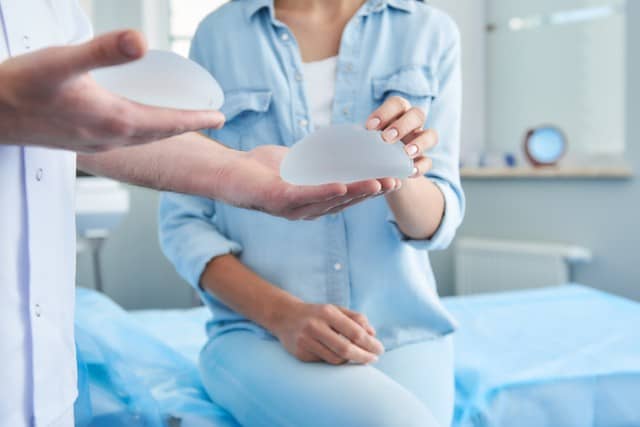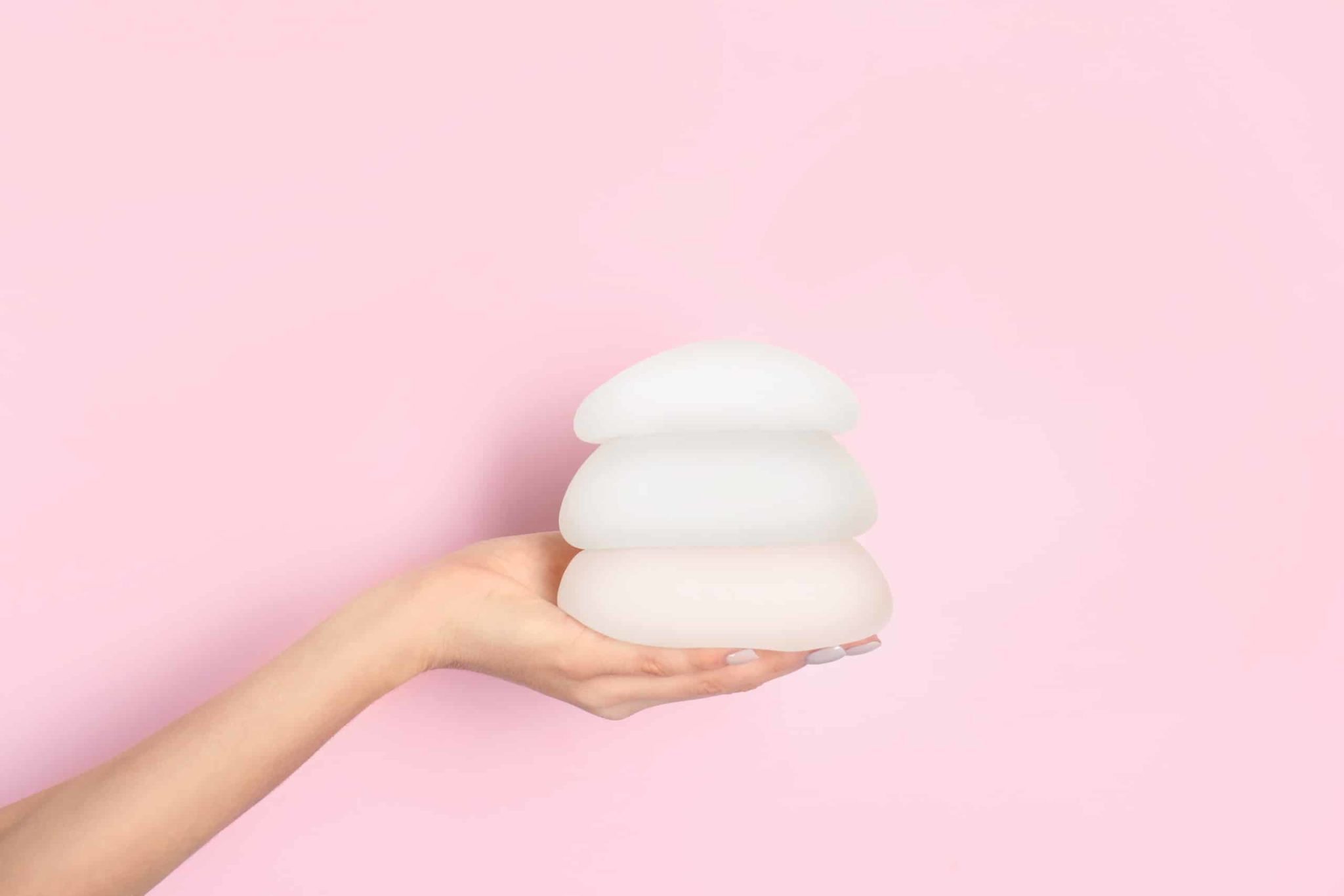Medically Reviewed April 2023, by Claire Clarke - Head of Surgical Services for The Harley Medical Group
The first breast enlargement surgery was performed in 1962 and naturally there were concerns about placing a prosthetic within the body, with lots of people considering surgery but asking themselves "are breast implants safe?". However, by 2006 after extensive testing and reviewing the US Food and Drugs Administration (FDA) approved silicone and saline breast implants. Since that first operation figures indicate that up to 10 million breast enlargement procedures have been performed worldwide.
While studies have not found evidence that breast implants, either silicone gel or saline, are connected with serious disease, there are still risks. There are also long-term implications. Here are some of the breast implant safety issues that you need to consider before undertaking surgery.

The most common causes of implant rupture are human error during surgery, trauma or implant defect.

Capsular contracture is the most common complication following breast implant surgery and is one of the most common reasons for the need to re-operate. Following surgery, the body forms a protective capsule of fibrous scar tissue around the implant, which it recognises as a foreign object. This tissue capsule is usually soft or slightly firm and not noticeable, it helps to keep the implant in place.
In some women however, a tissue capsule forms that is unusually hard and dense. The capsule tightens around and squeezes the implant, this condition is called capsular contracture. Capsular contracture can cause chronic pain and distortion in the shape of the breast, it can also make the breast rise higher on the chest. Signs of capsular contracture, such as increasing firmness or tightness in the breast, can start to appear as early as a few months after your breast enlargement surgery or even years later.
Mentor has developed a process to reduce the risk of capsular contracture. The implant shell is vulcanised, which means no glue or adhesive is used to make the implant. As there is no seal on the implant so the risk of rupture and capsular contracture is significantly reduced, and this process is so successful it's been patented!
ALCL stands for Anaplastic large cell lymphoma, the full title is Breast Implant Associate Anaplastic large cell lymphoma (BIA-ALCL), and is an extremely rare cancerous tumour that can potentially grow around breast implants.
The occurrence of ALCL affects is estimated at 1 in 24,000 breast implants (Source: Medicines and Healthcare products Regulatory Agency (MHRA) July 2018).It usually appears with a sudden swelling in the breast surrounding an implant, although it can present with a mass. It usually happens many years after the implants have been placed, an average of 8 years.
Women who have implants already, certainly should not be alarmed, but if they get a sudden swelling in their breasts, they should seek a referral from their GP to their local breast unit, who will follow guidelines set down by the Association of Breast Surgery (ABS) to ensure that there is no underlying serious cause for it. Most cases are easily treated by having the implant removed, along with the capsule that surrounds it (total capsulectomy).
Patient safety has been and always will be our priority which is why we recommend Mentor implants. MENTOR® Breast Implants are backed by substantial clinical data demonstrating safety and effectiveness in patients having undergone primary and revisionary augmentation and reconstruction surgeries. Mentor continues to support ongoing inquiries into the association of ALCL and breast implants.
Some patients with breast implants have reported a range of systemic symptoms which they refer to as breast implant illness. Manufacturers track and monitor the systemic symptoms reported to them and report them to the proper regulatory authorities. Whilst the current body of scientific evidence does not support claims that breast implants cause systemic illness, the FDA, in partnership with industry and medical and plastic surgery societies, is taking steps to better characterise the set of conditions and its risk factors and researchers are working to understand the origins of the symptoms.
Please remember that while our articles are accurate at the time of writing information does change and if you have any questions please come in and meet a member of our team for a free, no obligation, chat. If you have any concerns about your breast health please seek medical advice immediately.
When you choose The Harley Medical Group, you choose MENTOR® implants. You can be completely confident in both as your ten year MENTOR® warranty provides you with lifetime product replacement and £800 towards surgical costs in the case of rupture. In the highly unlikely event of capsular contracture, we cover you completely free of charge to have the implants removed and replaced for three years from the date of your surgery, terms and conditions apply. Hopefully this reassures anyone wondering 'are breast implants safe?'.
References: Are breast implants safe?
Breast Cancer Care - retrieved August 2019
John Hopkins Medical Centre Breast Care - retrieved August 2019
NHS - retrieved August 2019